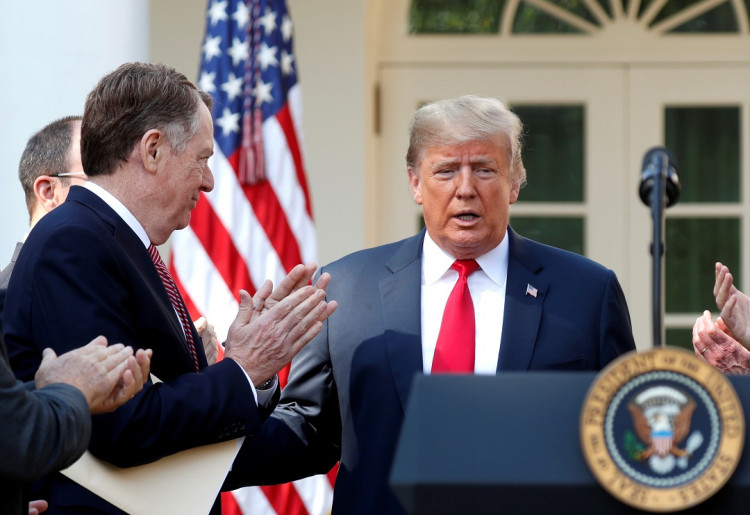Following US President Donald Trump's announcement on New Year's Eve regarding his plans to sign a phase one trade deal, China's trade delegation has now rescheduled their trip to Washington. The trade delegation plans to visit the US on January 13 for a four-day trip for the signing of the deal that could potentially put another temporary end to the long-running and costly trade dispute between the world's two largest economies.
The Chinese trade delegation, which is being led by Vice-Premier Liu He, originally planned to visit the US earlier in the month. That trip was canceled, as Chinese President Xi Jinping was unable to join the delegation. However, Trump's recent Tweet has promoted the team to reschedule their visit. Trump claimed that he was willing to sign the phase one trade deal with "high representatives" from China even if Xi was not present.
After Trump's unilateral announcement that he would sign the deal, the Chinese delegation revised their plans to accommodate Trump's statement that he would sign a deal on January 15 with a ceremony inside the White House.
Trump also stated that he will be visiting China "at a later date" to initial talks that will begin phase two negotiations. China has yet to confirm any schedule for Trump's visit to the country.
Analysts have mentioned that Trump's sudden announcement could be his way of trying to take full credit for the phase one deal given his sudden willingness to sign it on his own terms. China is, of course, eager to put an end to the dispute to ensure its continued stability, but it is less inclined to show off its efforts. Sources close to the bilateral talks echo the sentiment and mentioned that Trump is likely aiming to gain political capital from the trade deal if it pushes through.
In early December, US trade representative Robert Lighthizer had stated that both sides had agreed to an interim deal and that a phase one trade deal would be signed in January. Unlike the US, China had remained silent on the exact details of the agreed-upon deal. However, the country's finance minister, Liao Min, had previously stated that signing the phase one deal was a major priority for the government. When asked about the phase two talks, Liao explained that negotiations for the phase two deals would proceed depending on the implementation of the first phase.
In the weeks that followed after Lighthizer's announcement last month, it had become apparent that it would be difficult to have the two leaders meet to sign the deal in person. Some reports suggested that Xi does not intend to sign the deal in person but still wanted it to push through. Another report stated that China likely didn't care if the deal was signed in Beijing or in Washington or if both leaders were present for as long as it is legally binding and would benefit both sides.






